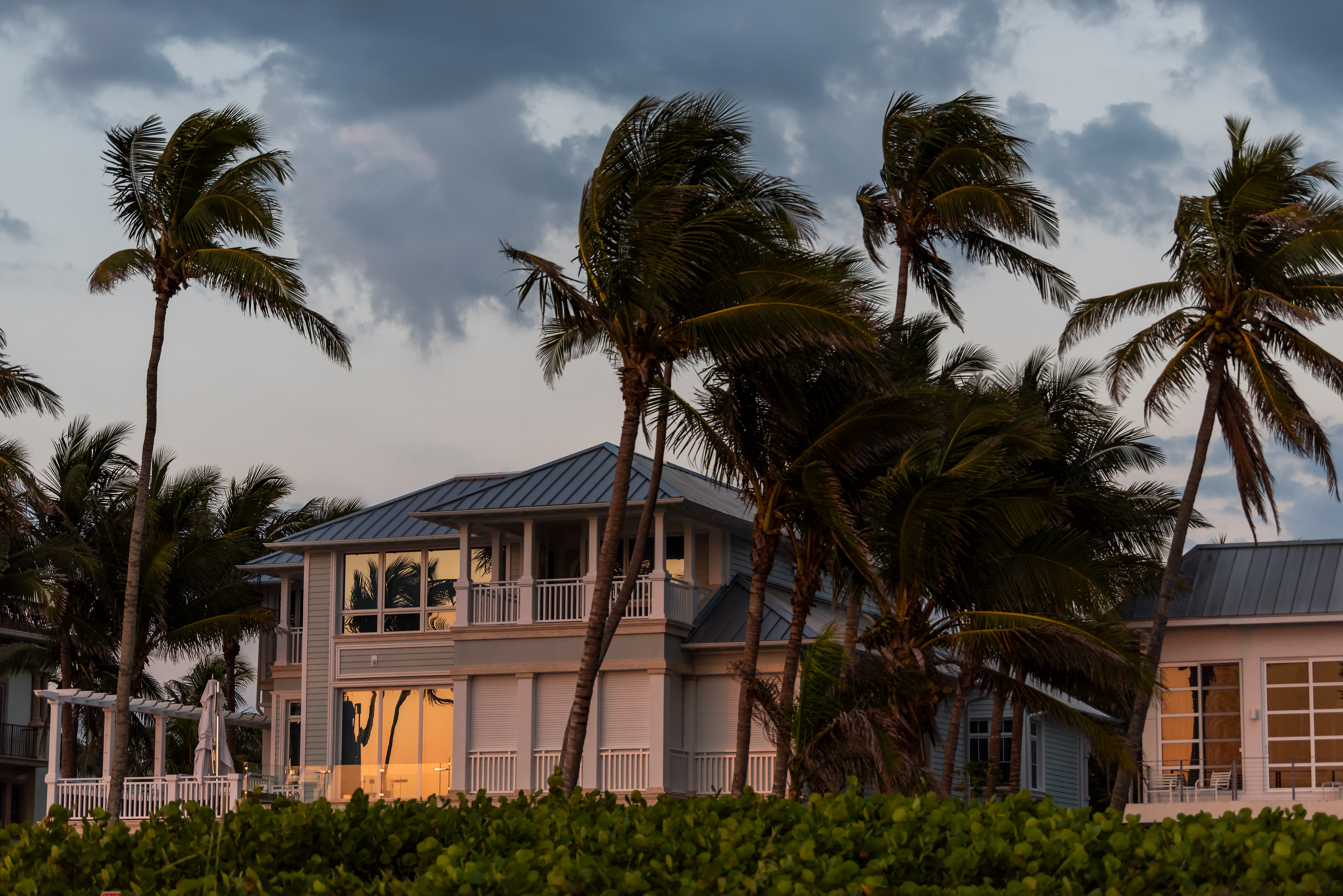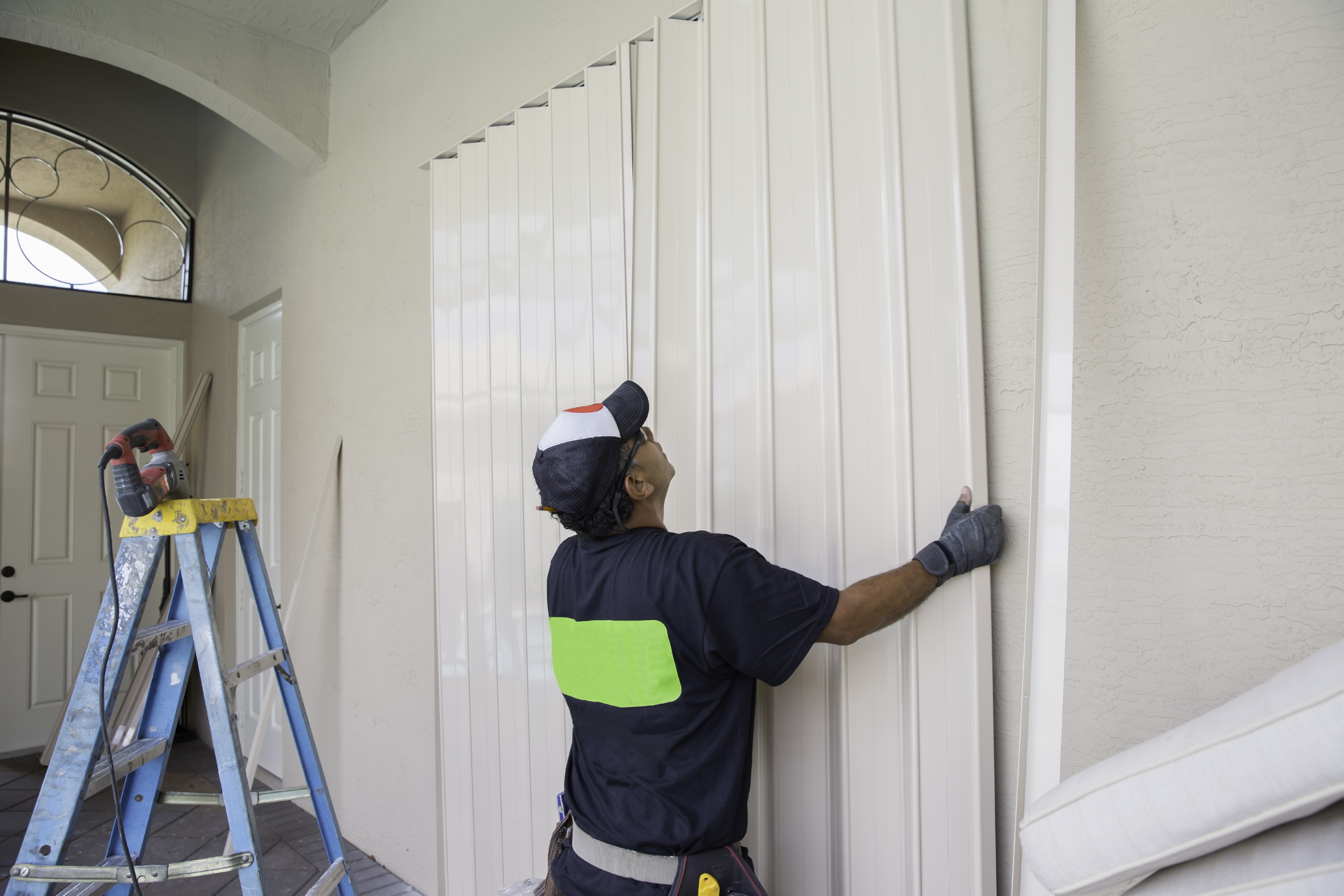As storm season approaches, many homeowners prepare their homes to withstand severe weather. Given that even minor storms can cause widespread power outages, much of that preparation includes planning for long periods without power. However, homeowners who have invested in solar panels may find themselves wondering: Will I lose power?
If you have traditional, grid-tied solar power and your neighborhood loses power, then your home will, too. One way to preserve power during outages caused by weather is to install an energy storage system. Such systems can ensure you have access to electricity, even if the utility grid is down in your immediate area.
Why home solar systems can experience outages
Homeowners may assume that because their solar panels are generating power independent of the grid, they'll be able to maintain power if a storm causes a grid outage. But that's not the case for a couple of reasons. First, your solar-powered home is still most likely tied into the grid. That means that you can still use power from your local utility if you need it. In some cases, you can even sell your surplus power back to your utility - ensuring your solar power is put to good use, and earning a little extra cash in the process.
However, many homeowners are surprised to learn that during an outage, your solar energy system automatically shuts off. The reason? Utility companies don't want power coming unexpectedly back into the system if workers are actively repairing it. Additionally, your solar-powered home makes energy when the sun is shining. Without an energy storage system, you won't have extra power to draw on during prolonged periods of cloudy weather and darkness, such as during a heavy storm or at night.
Energy storage makes the difference
The way to sidestep storm-related outages is to invest in energy storage. Also known as battery storage, these systems allow you to store your solar energy in batteries for later use. During an outage, energy storage systems become invaluable, allowing you to power your critical appliances, keep phones charged, security systems up, and refrigerators and freezers running.
Most battery storage systems offer a specific amount of storage. Consider what you'd need to power during or after a storm and talk with a contractor about what size storage system would be sufficient. Battery storage systems usually provide a specific amount of stored energy, with the more batteries installed the more power stored. Of course, adding batteries can be expensive. However, many home and business owners are starting to calculate the cost of not having power for long periods of time after a storm, the potential money lost, and the value of solar energy storage in those instances.
Your solar contractor can help you evaluate the minimum power you may need to get by during a weather-related outage and work up from there.
Prepping your home solar system for storms
Once you've determined the right energy storage system for your home and needs, work with a qualified installer to put it into place. Be wary of setting the system up yourself; incorrect or faulty installations can cause problems with your solar energy system and even void the warranties on your panels and batteries.
Fortunately, there's not too much to do to specifically ready your PV system for a storm. Most panels and racks are waterproof and constructed to withstand winds of up to 140 miles per hour. There's no need to cover the panels with anything or remove them. You may want to take some photos of your panels and system setup. That way, in the event they do get damaged, you'll have documentation for your insurance company.
During storm season, make a plan for ensuring the power stored in your batteries lasts as long as possible. Keep your storage system at full capacity. If a storm knocks the power out, use your stored energy to power critical devices first. Unplug appliances that you're not using and keep tabs on how much power you're drawing off your batteries.
When it comes to storms, outages may be inevitable. Plan to store some of your solar energy in advance, you'll you be ready for whatever the weather brings.
Interested in battery storage solutions for your home? Learn more about EverVolt, Panasonic's battery storage solution. For more insights on battery storage and renewable energy options, check out Panasonic's Green Living blog.





